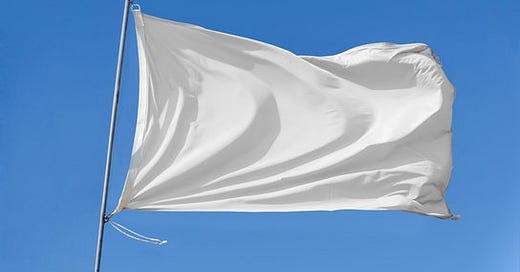Friday Forward - Quitting Time (#450)
Annie Duke shares excellent insights on the importance of knowing when to quit.
In her bestselling book Grit, renowned psychologist and Elevate Podcast guest Angela Duckworth argues that highly successful people often possess the ability to push through adversity and setbacks. Grit would lead us to believe top performers in all fields never quit.
But recently I interviewed another brilliant thinker, Annie Duke, who shared the flipside to grit: the importance of knowing when to give up.
Duke, a former professional poker player and author of Quit: The Power of Knowing When to Walk Away, shares that while perseverance is vital to success, so too is knowing when to quit.
Top performers combine a gritty mindset with the wisdom to know when something is no longer worth pursuing. In our conversation about her book, Duke outlined several insights about quitting, with applications for work, personal growth, relationships and more.
Know Your “Quit Criteria”
In the heat of the moment, it’s difficult to accurately assess whether it’s right to quit, as our emotions can cloud our judgment. This is why Duke emphasizes the importance of knowing your “quit criteria”: the conditions under which it is more prudent to walk away, rather than persevere. This functions similarly to a stop-loss order in investing, where an investor sets a predetermined value at which they’ll automatically sell their position to avoid a catastrophic loss.
Just as with a stop-loss, Duke argues it’s crucial to set your “quit criteria” in advance and stick to it. Setting predetermined quit criteria takes emotional bias out of the equation, enabling you to make the best decision at the pivotal moment.
Tame Your Fear of Losing
Duke also discussed the concept of prospect theory, which dictates that people fear losses more than they value equivalent gains. Prospect theory makes quitting more difficult because we are unwilling to take a “loss” by giving up on something we’ve committed to. This loss aversion keeps people in jobs that no longer inspire them, in stocks that are underwater, or in relationships that no longer serve them.
Plus, people who are already losing tend to take greater risks attempting to dig out of the hole they’re in, rather than accepting those losses and making the decision on a go-forward basis. This is what leads to the mistake of throwing good money after bad.
Sunk Costs Can Kill You
One of the most powerful cognitive traps is the sunk cost fallacy, which prompts us to be reluctant to quit things that we’ve already invested in. Duke outlined the danger of this thinking with a chilling example about climbers on Mount Everest.
By the time climbers have the opportunity to make a final push for the summit of Everest, they’ve already invested months of time and significant money to prepare for the climb and actually ascend the mountain. However, the final climb to the summit is the most dangerous part of the climb. Some climbers attempt to reach the summit in dangerous conditions because of all the work that has come before that moment, rather than making a potential life or death decision based on the facts on the ground. This error in judgment leads to multiple climbers dying on Everest each year, which is certainly a worse outcome than having to try again.
In business and life, clinging to sunk costs can keep you stuck in bad situations. The best decision you can make in any situation is to think about what you would do in the moment if the past did not exist, as that’s usually the right choice.
It Always Feels Too Early
Most people are haunted by the fear of quitting too early. No one wants to give up on a business venture just before it becomes profitable or leave a job when they’re on the cusp of a promotion that could change everything.
However, we tend to romanticize the idea of "what might have been" when we quit. We ignore the very real possibility that sticking it out may lead to even greater frustration or failure and instead imagine the rosy outcome that may have never been possible.
Collectively, we are often critical of people who quit both too early and too late, for entirely different reasons. However, having the judgment to quit before it’s necessary will ensure you live to fight another day, and may even position you to achieve the success you were hoping for all along.
As Duke knows well, every great poker player knows when to fold. Likewise, being unafraid to quit and knowing when to make that move often is the difference between success and failure.
What’s something that you are afraid to quit? More importantly, are you clear about your quit criteria?
I encourage you to listen to my entire conversation with Annie on the Elevate Podcast.
Quote of The Week
"You’ve got to know when to hold ‘em and know when to fold ‘em.” - Kenny Rogers
New For Premium Subscribers




Thanks for the comments, everyone! Fixed the link (and attributed the quote to the correct Kenny!)
Here's the link to Annie's podcast: https://link.chtbl.com/elevateduke
Kenny Rogers, not Kenny Loggins.....